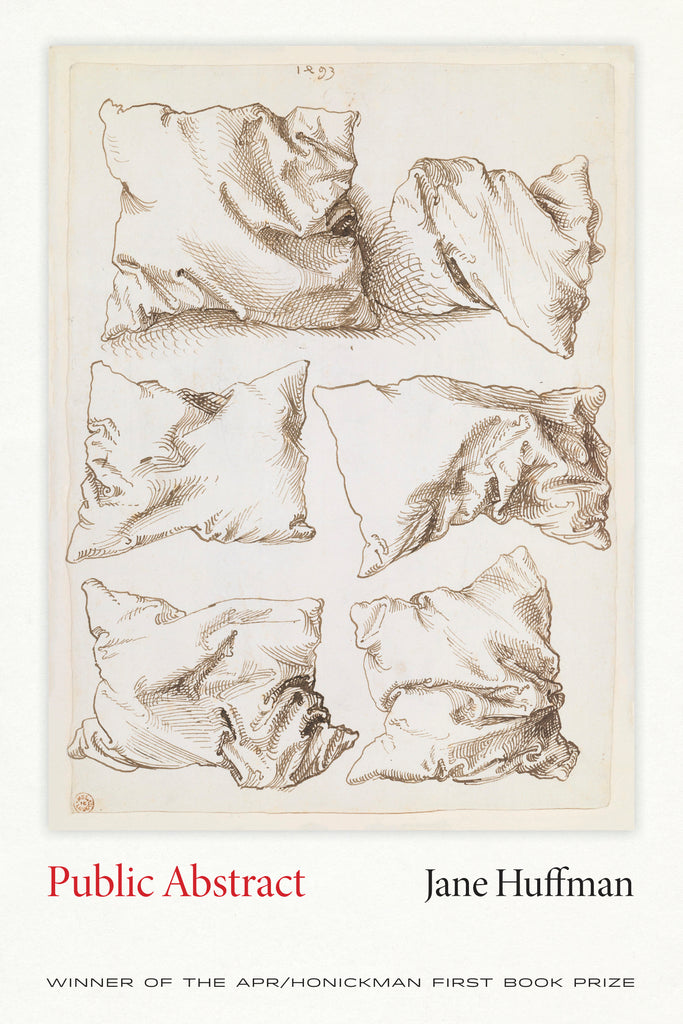
Chosen by Dana Levin as the winner of the 2023 APR/Honickman First Book Prize, Public Abstract is a must-read debut. From this collection emerges a private idiom, an obsession with language's terse, compulsive music via overwound meter, teeming repetition, and rhyme undercutting the usual trappings of rhyme. Public Abstract is an exploration of anxiety, illness, and addiction: the ripples of influence an addict has on their family circle, and vice versa. The poet's tension: a private mind, devoted to its privacy, laid out on the page, an abstracted, public revelation. Huffman's approach, building an aesthetic of compressed interiority, is like nothing else being written in contemporary American poetry.
Praise for Public Abstract:
The title of the first section—A BOUT—in Jane Huffman’s exquisite first collection, Public Abstract, is synecdochic for the book entire. It disassembles aboutness—the very heart of the narrative urge—and re-centers the bout—a head-to-head encounter with intensity. If a poem is a machine made of words, as William Carlos Williams asserts, then Huffman’s machines are obsessional, so metrically and sonically driven that they threaten to jump the track. Her forms are the forms of late-stage capitalism—tumbling or threatening to tumble, adulterated by misuse and time, a colonnade of seamlessly designed columns pulling apart at the seams. Public Abstract cannot be reduced to a series of issues or subjects. Instead, these poems are formal archetypes of foundational motifs. Embodiment. Power and powerlessness. The vulnerable soul at odds with brutal circumstance. Emily Dickinson invented an expansive aesthetic, theology, and Self in the small chamber of her bedroom. With a turn of the lock, she was free. Huffman emerges from that tradition, but her primary source and influence is not the hymnal but literary and rhetorical form. Her argument is not with God, but with philosophy and history, public, personal, and intellectual. Her chamber is not the bedroom, but the private bedlam of the poem within the poem.
--Diane Seuss, author of frank: sonnets
